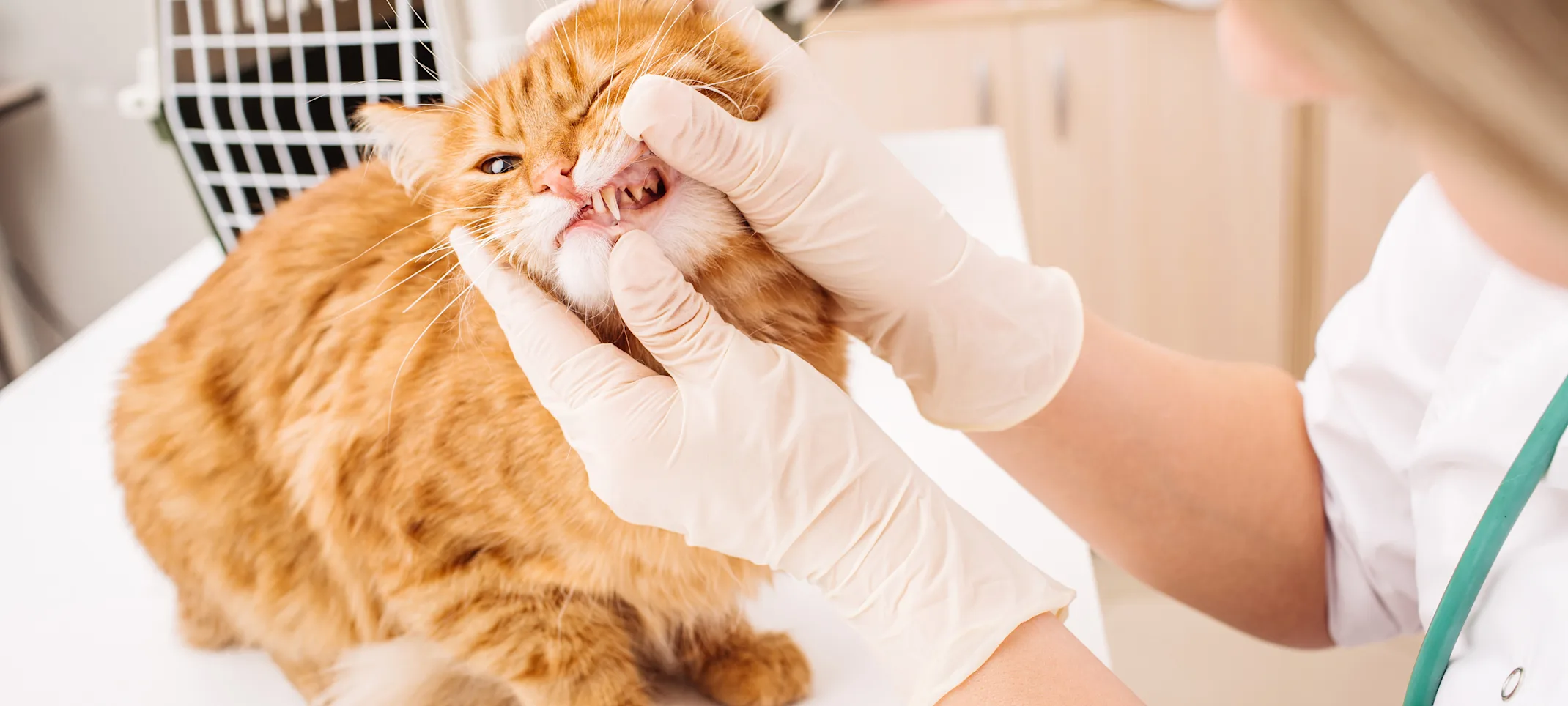Dentistry
Most of us spend time grooming, feeding and playing with our cats but we might not spend much time brushing their teeth. Your cats’ oral health is an important part of their overall well-being. We recommend annual oral exams to evaluate your friends’ teeth and gums and to make recommendations to deter and delay the onset of periodontal disease, as well as to treat existing problems.

Overview
50% of all cats have some degree of periodontal disease with that number jumping to 75% of cats over three years of age. Left untreated, unhealthy mouths can cause infection, discomfort or pain, and tooth loss. Unmanaged periodontal disease can cause or contribute to serious health problems in other areas of the body such as the heart, liver or kidneys. Consequently, we recommend a thorough assessment of your cat’s mouth at her regularly scheduled annual examination.
Why do cats need dental care?
Many health problems originate in the mouth: plaque, tartar, gum disease and damaged teeth are sources of inflammation and infection for the rest of the body. Among the most common problems we see in cats, dental disease can cause drooling, reluctance to eat, swelling and redness of the gums, bad breath and loose or missing teeth.
When should I seek dental care for my cat?
Many dental conditions and related diseases can be prevented by regular visits to the veterinarian for oral examinations. We will assess existing problems and make appropriate recommendations for treatment as well as prevention of future disease.
What happens during dental cleaning?
The mechanics of cat dentistry are similar to human dentistry except that general anesthesia is required to safely and thoroughly examine and clean the teeth. Our veterinarian performs a thorough tooth-by-tooth examination to check for evidence of disease such as gingival recession (gum loss), root exposure or pockets around the tooth root. Full mouth radiographs are a critical component of dentistry as they allow us to evaluate the entire tooth for “hidden” disease that is undetectable by physical examination.
Extractions
Whenever possible we will treat teeth to avoid extraction. Unfortunately, cats develop a specific type of resorptive lesions that are not helped by conventional therapies such as root canals. Furthermore, some disease is simply too advanced to salvage a tooth. In these circumstances, the best option for your cat is extraction (“toothenasia”) to spare them the discomfort and potential future complications of diseased teeth. A combination of local analgesic blocks, injectable medications and oral medications after the procedure, will keep your friend comfortable during healing.
